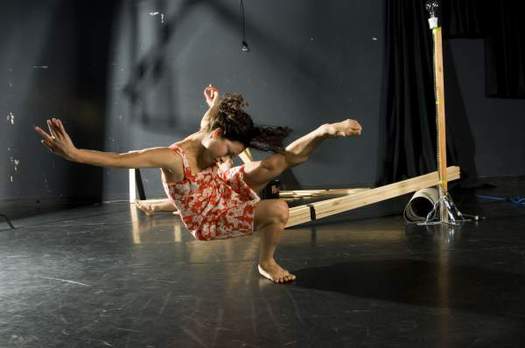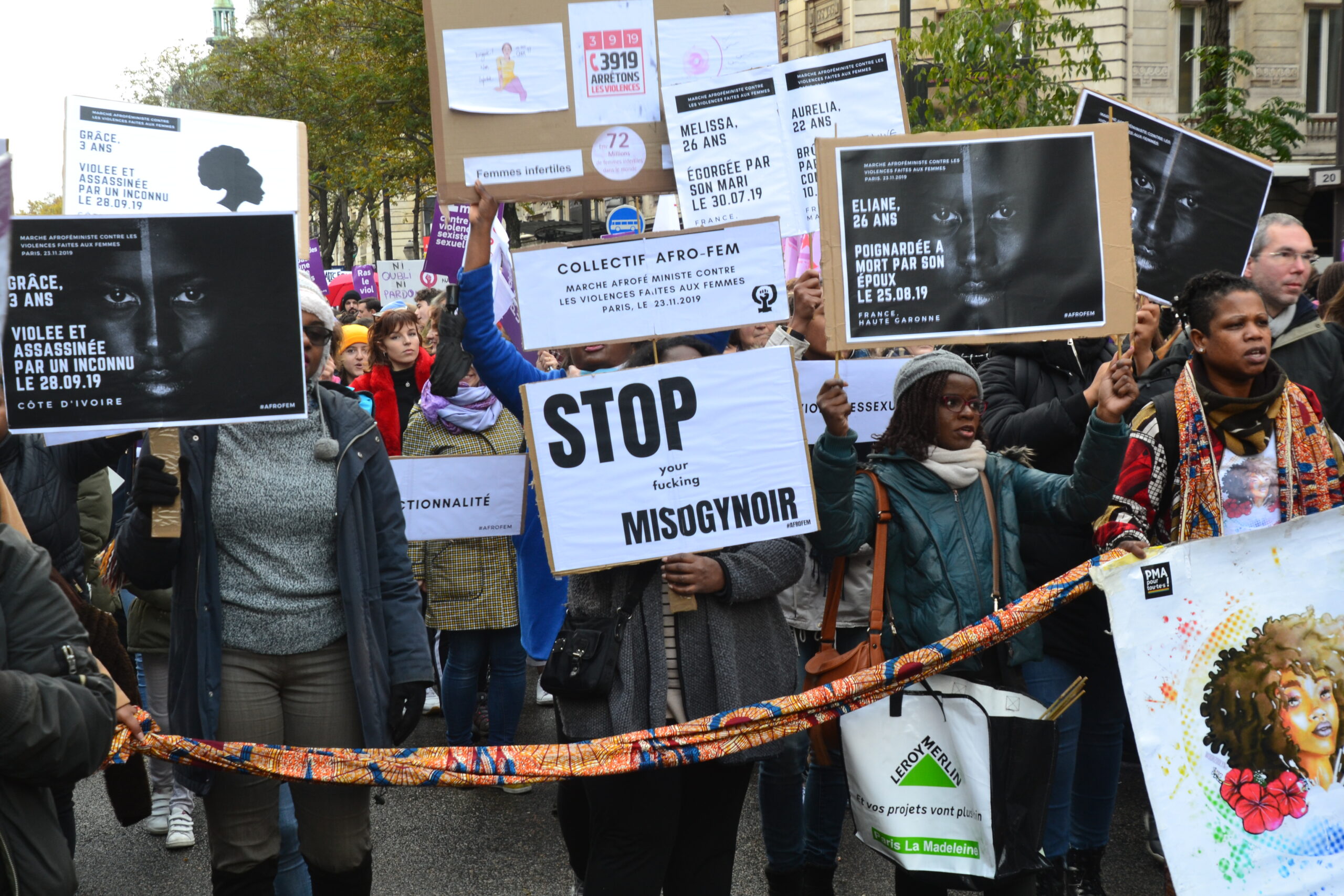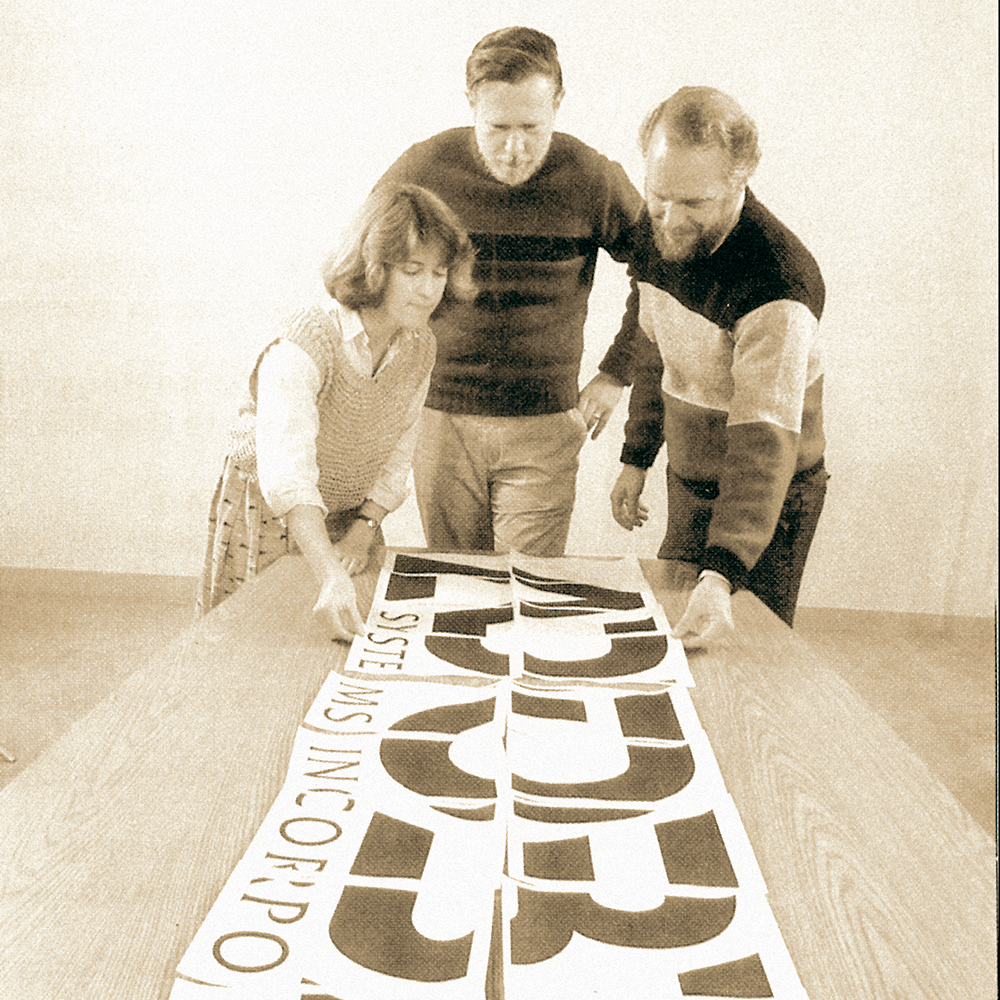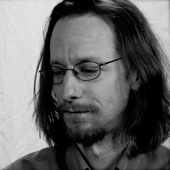
February 23, 2012
Dance About Architecture (Please)

From a performance of construct, by Tanja Liedtke. Photo by Chris Herzfeld, via Seattlest.
Should you be so inclined, you can Google up extensive speculation and investigation into the question of whether it was Martin Mull, Frank Zappa, Steve Martin, Laurie Anderson, Elvis Costello, or someone else who first asserted that “writing about music is like dancing about architecture.” Whatever its origins, the phrase means to suggest that music criticism is meaningless exercise. And by and large, it is deployed as a rhetorical bomb to obliterate some negative critical assessment of a musician’s work: Not only are the critic’s specific observations false, the critic’s very practice is pointless and invalid.
Haw haw, funny, fine; I get it. But the problem, to me, has always been that “dancing about architecture” sounds fairly awesome. What a great thing to do! Why isn’t there more dancing about architecture? I’d pay to see it. Wouldn’t you?*
Maybe the answer depends on how good the dancing is. (Some music criticism seems more like … marching.) Or maybe — in the spirit of Bill Clinton on the word “is,” and Bill Gates on “we” — the key is what exactly is meant by dancing/writing about architecture/music. One answer was offered in this piece in The Telegraph, the most recent thing I’ve read that deployed the “dancing about architecture” trop:
Writing about music has a serious built-in problem, which is that the only thing worth doing is also nearly impossible: to convey something of what the emotional experience of listening is like.
Okay, this is the problem. An attempt to describe architecture via dance does seem obtuse; so does choosing dance as a medium to express the three-out-of-five stars or thumbs-up-thumbs-down version of “criticism.” But “writing about” something, music included, can obviously mean something beyond description paired with a judgment rendered. (In fact, even “criticism” ought to mean a lot more than that.) So I reject the restrictions that the above definition implies.
But if “about” means something closer to “in response to” or even “inspired by,” then we’re getting somewhere. Maybe it’s the difference between treating “music” or “architecture” or whatever as a thing to be merely evaluated or reacted to, and treating it as inspiration, a sort of muse.
If the dancing, or the writing, results in genuinely fresh expression, something with meaning and value of its own, that’s not pointless or invalid — it’s creativity. After all, a lot of people seemed to enjoy High Fidelity.
All creativity, really, is about something, isn’t it? So would you say “singing about love is like dancing about architecture”? You certainly could. And I’d agree wholeheartedly: Sounds to me like an excellent thing to do.
And if architecture seems an unlikely thing to dance about, that’s sort of the point, isn’t it? Creativity inspired by non-obvious subjects and muses isn’t a problem; it’s an inspiration. Really the only thing I can think of that sounds better than dancing about architecture would be dancing about ruins. But I’ll save that line of thought for another time.
* My guess is that dancing about architecture has been done, more than once. I stumbled on one example while casting about for a picture to go with this post. Please feel free to educate me further in the comments.
Observed
View all
Observed
By Rob Walker
Related Posts

Equity Observer
L’Oreal Thompson Payton|Essays
‘Misogynoir is a distraction’: Moya Bailey on why Kamala Harris (or any U.S. president) is not going to save us

Equity Observer
Ellen McGirt|Essays
I’m looking for a dad in finance

She the People
Aimee Allison|Audio
She the People with Aimee Allison, a new podcast from Design Observer

Equity Observer
Kevin Bethune|Essays
Oh My, AI
Related Posts

Equity Observer
L’Oreal Thompson Payton|Essays
‘Misogynoir is a distraction’: Moya Bailey on why Kamala Harris (or any U.S. president) is not going to save us

Equity Observer
Ellen McGirt|Essays
I’m looking for a dad in finance

She the People
Aimee Allison|Audio
She the People with Aimee Allison, a new podcast from Design Observer

Equity Observer
Kevin Bethune|Essays

 Rob Walker is a technology/culture columnist for
Rob Walker is a technology/culture columnist for